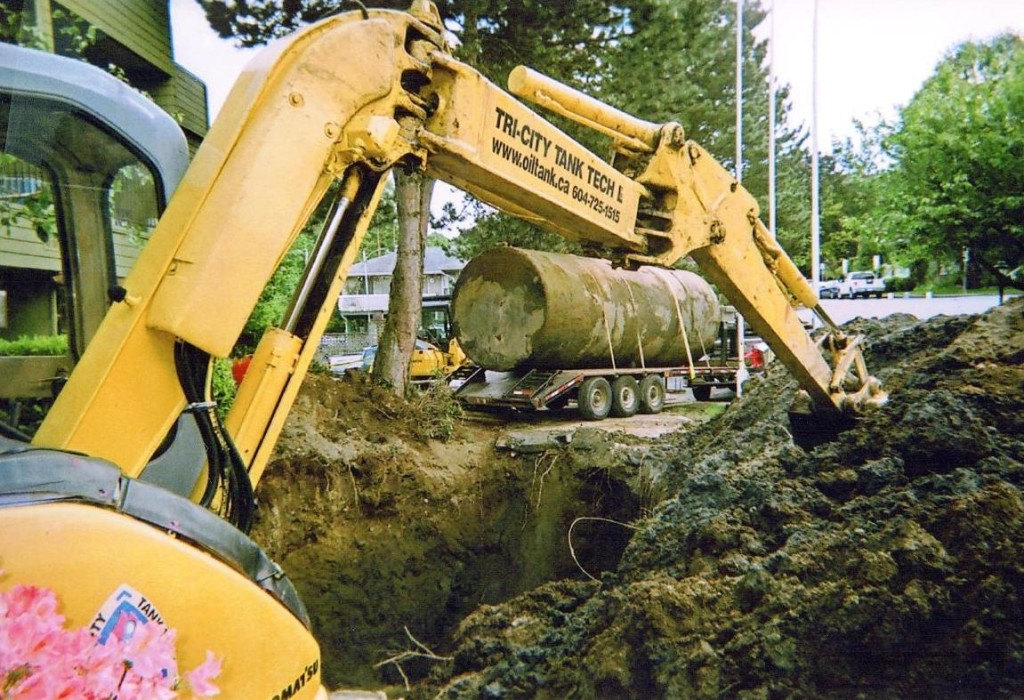6 Reasons for Commercial Oil Tank Removal
Commercial oil tanks can be a highly effective way to heat your business. However, as new and improved alternatives to heating buildings arise, the cons of owning property with an oil tank on it are becoming more apparent. Here are some reasons why you may need to choose commercial oil tank removal:
Aesthetics
For business owners worried about aesthetics, commercial oil tanks may not be the first option in terms of heating. Although commercial oil tanks are typically buried underground, which at least puts them out of view, they still come with their own negatives. If severe maintenance ever needs to take place on the oil tank, it’s likely your grass or cement around your building will have to be ripped up and re-landscaped following the service. Thus reason number one for oil tank removal.
Maintenance
An oil tank can potentially require extensive maintenance, especially if there is a leak, and ESPECIALLY if the oil tank is buried underground, which is the case with most commercial oil tanks because of their bulk. In these scenarios not only does the leak need to be fixed, or the oil tank replaced, but the soil must be remediated as well. If there has been no leak, periodic maintenance is still very insisted upon to ensure the prevention of any sort of leak. Leak gauges must be in working order and oil levels should stay above a minimum. Oil tanks involve such a toxic substance, only licensed professionals should be handling the maintenance, repair, or installation of a commercial oil tank. And in cases like soil remediation, this is not work a business owner is legally allowed to handle. It’s a comfort to know there are licensed professionals to help, but also an added expense.

High Costs
While the cost of oil tanks themselves may be less expensive than say a gas furnace, the cost of the fuel is not. In fact, the price of oil is fairly expensive, which could be one reason why fewer and fewer properties are heated by an oil tank. So save money this year, and enlist professionals for oil tank removal.
Energy Efficiency
The numbers are not quite as staggering in terms of energy efficiency as they are for cost. Yes, gas does still outway oil in the energy efficiency department, but not by as much as you would think. The efficiency rating is known as the Annual Fuel Utilization Efficiency. Gas furnaces have an AFUE of anywhere between 89%- 98%, while oil tanks are more between the 80%- 90% range.
Potential Environmental Harm
The idea of extensive maintenance ties in to this idea of potential environmental harm. An issue with your commercial oil tank could plague not only the soil you business sits on, but the air your employees breathe, and the water that you drink. That’s a scary thought! Now, it is an idea that can be taken care of and prevented, however there must be a presence of mind about this possibility. If a gas furnace were to stop working, this would not impact anyone besides the owner of the building, who could enlist the help of a professional or simply replace the furnace. The process would be much simpler and less dangerous.
Selling Your Property
The last reason a business owner may commercial choose oil tank removal is if they are considering selling the property in the next couple years. Unfortunately, having an oil tank as a heat source is very unappealing to most property buyers, and can lots of timely steps to the buying and selling process. It comes with added precautions and environmental worries, as well as ESA regulations before the property can even be bought.
If you own commercial land and are considering oil tank removal contact us today at Tslack. We’ll be happy to answer any questions you may have and to walk you through our removal process.





